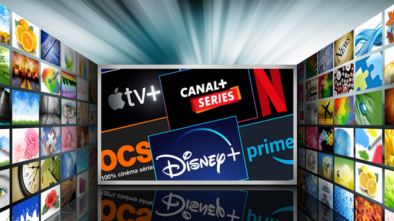The Rise of IPTV: Transforming Television in the Digital Age
In the rapidly evolving world of digital media, abonnement iptv (Internet Protocol Television) has emerged as a game-changing technology that is reshaping the way we consume television content. Unlike traditional broadcasting methods such as satellite or cable, IPTV delivers television programming through the internet, offering a more flexible, interactive, and personalized viewing experience. This article explores the rise of IPTV, its advantages, challenges, and its impact on the future of television.
What is IPTV?
IPTV is a system where television services are delivered using the Internet Protocol suite over a packet-switched network such as the internet, instead of being delivered through traditional terrestrial, satellite signal, and cable television formats. In simpler terms, IPTV streams content through the internet, allowing users to watch television programs, movies, and other multimedia content on a wide range of devices, including smart TVs, computers, smartphones, and tablets.
The Evolution of Television Viewing
The transition from analog to digital television was the first significant shift in how content was delivered and consumed. Digital television offered better picture quality, more channels, and additional features like electronic program guides (EPGs). However, IPTV takes this evolution a step further by leveraging the internet’s capabilities to offer a completely new way of accessing and interacting with content.
Unlike traditional broadcasting, which requires viewers to tune in at specific times, IPTV allows for on-demand viewing. This means that users can watch their favorite shows, movies, or sports events whenever they want, rather than being tied to a broadcaster’s schedule. This flexibility is a major draw for modern viewers who are increasingly looking for convenience and control over their media consumption.
Key Advantages of IPTV
- On-Demand Content: One of the most significant advantages of IPTV is its ability to provide on-demand content. Users can choose from a vast library of movies, TV shows, and other media, watching them at their convenience. This is a marked departure from traditional TV, where viewers are limited to what is currently being broadcast.
- Time-Shifting: IPTV also offers time-shifting features, such as the ability to pause, rewind, or fast-forward live TV broadcasts. This means you can start watching a live show whenever you want, without missing any part of it.
- Multi-Screen Viewing: IPTV services are not confined to a single television screen. Content can be streamed to multiple devices simultaneously, allowing users to watch different shows on different screens within the same household.
- Interactive Features: IPTV platforms often include interactive features, such as voting on reality shows, participating in polls, or accessing additional information about a program. This interactivity enhances the viewing experience by engaging the audience more directly.
- Personalization: With IPTV, content recommendations can be tailored to individual users based on their viewing habits. This personalized approach helps users discover new content that aligns with their interests.
Challenges Facing IPTV
Despite its numerous advantages, IPTV is not without challenges. The quality of the viewing experience is heavily dependent on the user’s internet connection. Unlike traditional broadcast methods, which can deliver a consistent signal regardless of internet speed, IPTV requires a stable and fast connection to avoid buffering and lag issues.
Furthermore, the rise of IPTV has led to concerns over content piracy. Because IPTV streams content over the internet, it can be easier for unauthorized users to access and distribute copyrighted material. This has prompted the need for robust security measures and regulations to protect intellectual property.
There is also the issue of content fragmentation. With the proliferation of IPTV providers, viewers may find it challenging to navigate the various services and subscriptions required to access their preferred content. This fragmentation can lead to a complicated and potentially expensive viewing experience, as users may need to subscribe to multiple platforms to get all the shows and movies they want.
The Future of IPTV
The future of IPTV looks promising as it continues to grow and adapt to the changing landscape of digital media. With advancements in internet infrastructure, such as the rollout of 5G networks, the quality and accessibility of IPTV services are expected to improve, reducing issues related to buffering and lag.
Moreover, the integration of artificial intelligence (AI) and machine learning into IPTV platforms will further enhance personalization and content discovery, providing users with an even more tailored viewing experience. AI can analyze viewing patterns and preferences to recommend content that aligns with the user’s tastes, making it easier to find new shows and movies.
As IPTV becomes more mainstream, it is likely to drive further innovation in the television industry. We may see the development of new interactive features, such as virtual reality (VR) and augmented reality (AR) experiences, that will take television viewing to a whole new level.
Conclusion
IPTV is revolutionizing the way we consume television content, offering unprecedented flexibility, personalization, and interactivity. While it faces challenges such as dependency on internet quality and concerns over content fragmentation, the future of IPTV is bright. As technology continues to evolve, IPTV will likely play a central role in the future of television, offering viewers a more engaging and convenient way to watch their favorite content.



